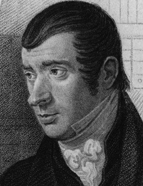

His contact with the ideas of Encyclopaedism and the French Revolution enthused him and led him to be initiated into Freemasonry. One must realise that in the decades between 1790 and 1810, the various Masonic affiliations and lineages were not only incompatible with aristocratic, ecclesiastical, artistic and academic forms of social life but also mirrored the very division of Portuguese and European societies into traditionalist, reformist, moderate , and radical sensibilities.
Liberato ’ s (literally, freedman, former slave) ideals of freedom and liberation, both individual and national, would, according to this dual logic, Masonic and historical, involve a search for light, the enlightenment of the human spirit and of the elites, which, once achieved, would allow for the regeneration of customs and peoples. Hence , the importance of enlightening his readers, not only through journalism but also throug h historiographical, Masonic and parliamentary memoir writing that he cultivated. Liberato ’ s life was both unique and characteristic of his time due to the various obstacles he faced. At the age of 80, he himself tells us in his m emoir : ‘Although my situation in life was neither high nor brilliant, it was not obscure: I served my country with all the resources of my intelligence; I contributed a lot to giving it freedom; I suffered banishment, imprisonment, emigration , and hardship for it’ (J.L. Freire de Carvalho, Memórias [Memoirs] , op. cit ., pp. 5-6).
Liberato had four occupations over the course of several decades of his troubled life. He was a political journalist (especially between 1814 and 1823 and in 1827-28), archivist for the Chamber of Peers (from 1834), ministerial official (1821-27) , and administrator of the National Press (1836-40). He also held public office as a member of parliament in four legislatures (1822, 1834, 1836 , and 1839), standing out above all for his intervention in favour of the law banishing D. Miguel and his descendants ( Idem , op. cit ., pp. 371-375).
This work is financed by national funds through FCT - Foundation for Science and Technology, I.P, in the scope of the projects UIDB/04311/2020 and UIDP/04311/2020.
